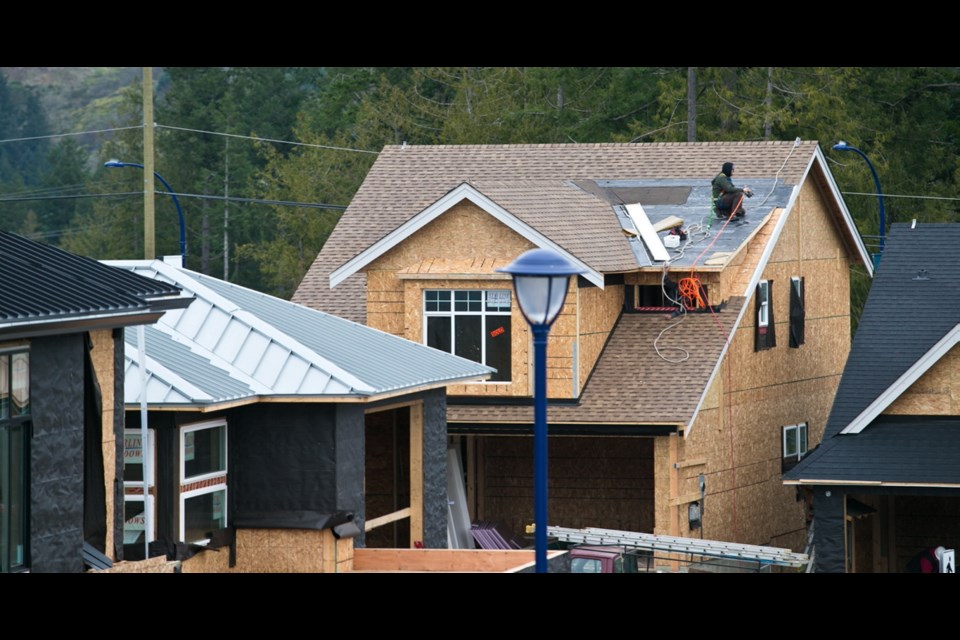John Horgan takes a breather outside the Mary Winspear Centre in Sidney on a sunny afternoon.
The B.C. NDP leader has just announced his party’s commitment to freeze ferry fares on major routes and is en route to another event. But first, he’s taking a moment to reflect on his own electoral district of Langford-Juan de Fuca, a few kilometres away.
“Thanks for tracking me down,” he says. “Being the leader of a party in the midst of an election campaign makes it extremely difficult to stay connected to my community.”
> Candidate profiles for Langford-Juan de Fuca riding (LINK)
As the incumbent candidate, Horgan is the man to beat in the riding. He has held the seat for 12 years.
But as party leader, his focus has to go beyond the district’s boundaries. An example was his absence from an all-candidates meeting in Sooke, to which he sent veteran MLA Maurine Karagianis in his place.
He’s banking on voter satisfaction with his record, such as his advocacy for the Belmont high school construction as education critic.
Meanwhile, his four rookie challengers have been knocking on doors, introducing themselves to voters.
The sprawling electoral district of Langford-Juan de Fuca comprises a diverse electorate — from the ballooning populations in Langford and Sooke to residents of the forested Highlands and coastal Port Renfrew.
Despite the diversity, voters seem fairly united in their priorities: Transportation and affordability are tops, followed by demand for doctors and access to health care. Some of those priorities overlap. Highway 14’s vulnerability to gridlock whenever there’s an accident strengthens calls for more doctors in Sooke, so that patients don’t have to risk the journey.
Running for the B.C. Green Party is Brendan Ralfs, a 46-year-old emergency manager taking a leave from the public service during the campaign. Before entering the race, Ralfs spent 20 years as a forest firefighter near Salmon Arm. He said both roles have instilled in him an appreciation for public service.
Ralfs, who lives just outside the electoral district at Prospect Lake, says he has heard a broad range of concerns. “If I had to put it under one umbrella, I’d say making it a livable community.”
That includes reducing congestion to downtown, improving safety on Highway 14, and improving the housing supply and affordability.
The Liberals have tapped charity and event organizer Cathy Noel as their candidate. Noel is best known as race director for the GoodLife Victoria Marathon and Victoria Goddess Run and past-director for the TC 10K.
A resident of Saanich, Noel says she “lives and works” in the riding, where she is an event manager for Bear Mountain in Langford. She has also worked in real-estate development.
In addition to Highway 14, Noel said developing a transportation system toward downtown Victoria is a priority — including rail transit and integrating options such as ridesharing.
“With Langford and the District of Highlands, and for people coming through [the area] to go downtown, being able to have choices to get from A to B is important,” said Noel, 51.
The other two candidates represent a younger demographic. The Vancouver Island Party’s Willie Nelson, 27, has drawn attention for sharing the same name as the famous singer/songwriter, playing his mandolin and declaring at the all-candidates meeting that he would raise a civilian navy to block Burrard Inlet, if Kinder Morgan twins its Trans-Mountain pipeline.
Twice, he encouraged the Greens and NDP to create a coalition to take down the Liberals.
Libertarian Scott Burton, 20, is a longtime resident of the West Shore and works as a detailer at Galaxy Motors in Colwood.
“I’m tired of the B.C. Liberals and NDP bouncing back and forth, running the province. I decided to join up and finally have my chance to make a difference,” said Burton, who was also absent from the all-candidates meeting.
Horgan said the biggest issue in his district is affordability, which encompasses everything from rising ICBC and B.C. Hydro rates to the cost of post-secondary education and child care.
“It’s increasingly difficult for people to make ends meet, even in ‘affordable’ communities like Langford.”



